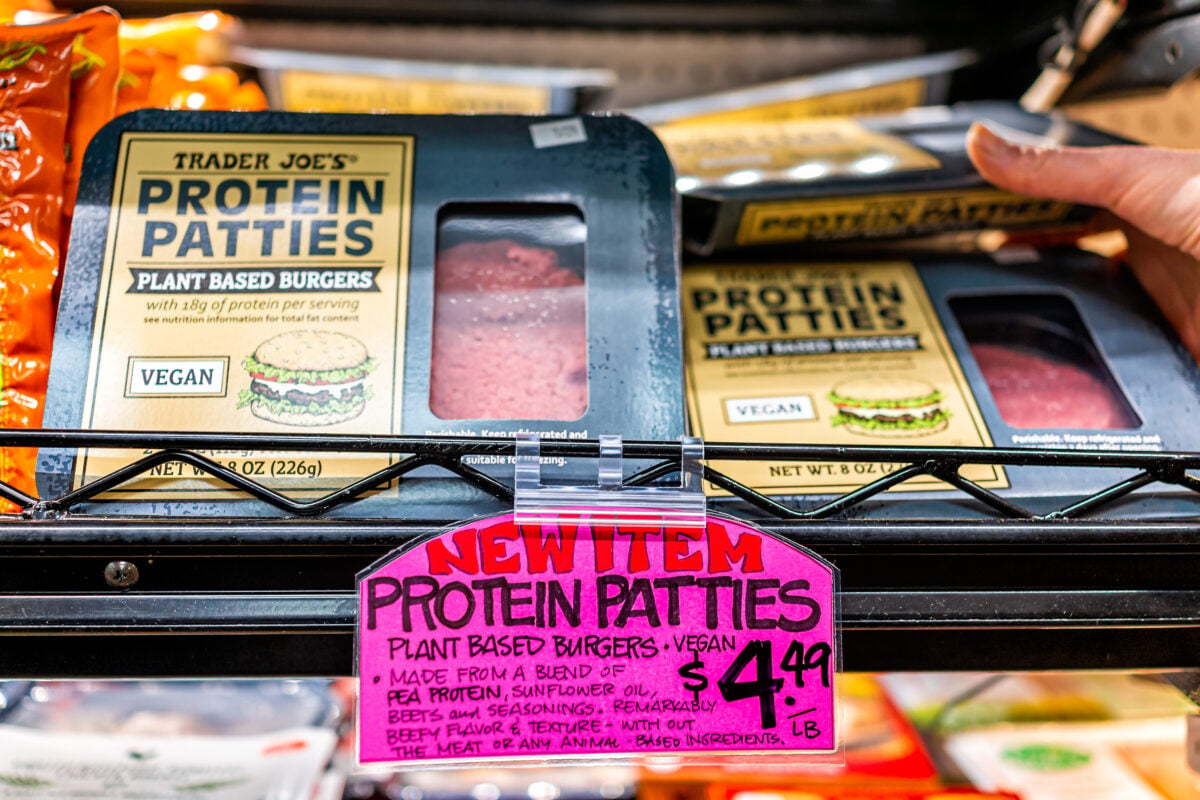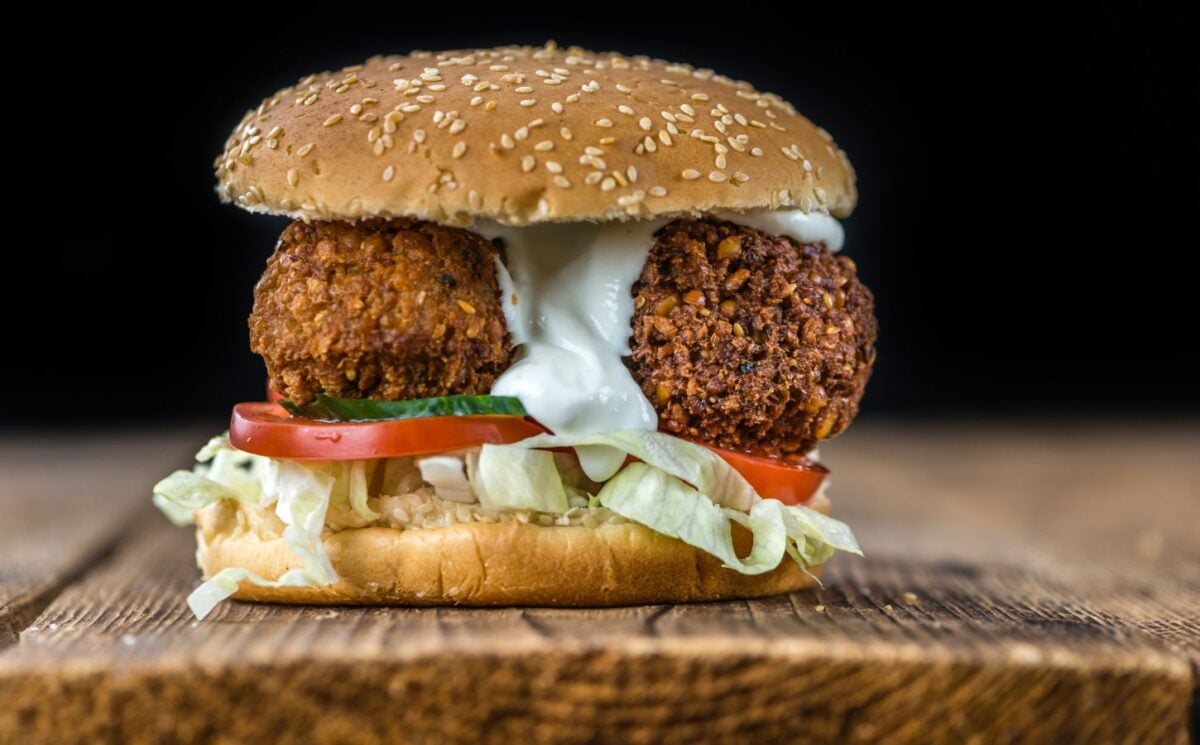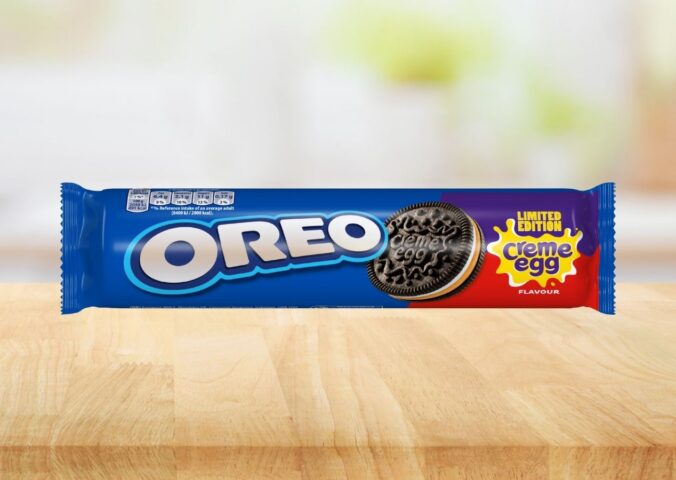Americans will choose a falafel burger over a plant-based burger that imitates meat, according to a new study. They are also more likely to choose a meat-free burger if it is cheaper than a meat one.
For the study, German researchers surveyed 2,126 Americans online. They were offered descriptions and pictures of four burgers and asked to choose between them. These were a beef burger, a more realistically meaty plant-based burger (analogue), a plant-based burger that was similar to meat in appearance only (semi-analogue), and a falafel burger (non-analogue).
While the majority, at 75 percent, chose the beef burger, the researchers were surprised that the falafel burger beat the analogue burger as the first choice of 11.5 percent of respondents. It also had the largest share of second-choice votes at 33.7 percent. The analogue burger was first choice for the fewest people, only 6.3 percent. The results also revealed that most people would eat a meat-free burger if no meat burger were available. Just a third would refuse to eat a meat-free burger in such a scenario.
Read more: Digital ‘Nudging’ Can Motivate Online Shoppers To Buy Plant-Based Foods, Says Study
“This contradicts the widespread assumption that meat substitutes are only competitive if they are as close as possible to the original,” lead author Steffen Jahn said in a statement.
Price makes a difference

Many manufacturers of plant-based meat alternatives are trying to replicate meat as closely as possible with plant ingredients. But the study suggests that similarity to meat might matter less than cost.
As a second part of the study, the researchers asked participants to make choices once prices had been attached to the burgers. Cost had notable impact on whether participants chose meat-free burgers or not. If they were more expensive than the beef burger, as they often are in reality, there was a 20 percent drop in people choosing them.
The share of people choose meat-free burgers rose to 21 percent if they cost the same as beef burgers. If they were cheaper, that share rose further. When they cost half as much as meat, 38 percent of people chose them. Preference for analogue burgers in particular rose based on lower price.
Unexpectedly, the number of male participants that chose cheaper meat-free burgers reached nearly 50 percent. This was despite men being more committed to eating meat. Even men who had never tried a meat-free burger before opted for one if it was a lot cheaper.
“Restaurants and food manufacturers might actually be able to increase their sales of vegetarian or vegan alternatives if they offered meat substitutes at lower prices than the meat options,” said Jahn. “A truly faithful imitation is not the goal here, our study suggests.” He speculated that this could be because people have come to think of meat analogues as ultra-processed.
Read more: Shoppers Feel Sorry For ‘Sad’ Lone Bananas In Supermarkets, Study Finds






